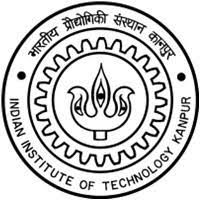About The The Indian Institute of Technology, Kanpur(IIT Kanpur)
The Indian Institute of Technology, Kanpur, established in 1959, is one of the major institutions established by the Indian government. The Institute's goal is to provide meaningful education, conduct original research of the highest caliber, and provide leadership in technological innovation.
Research Overview
Researchers at IIT Kanpur conduct high-level research, often at the forefront of their field. The diversity of research projects undertaken by IITK is a measure of IITK's strong research track record. It is the result of the great synergy between fundamental research and applied research carried out at the IITK.
Training courses
Undergraduate studies
IITK offers a liberal undergraduate education, where knowledge of science and technology is part of a larger knowledge platform. A student has the possibility of opting for more than 50% of the courses outside the department chosen by the student. Of these, a student can opt for more than 25% of courses in areas such as management and humanities.
Thus, the student is free to develop a broad base of knowledge that covers many disciplines. IITK recognizes a college degree as the beginning of a student's higher education learning and encourages the student to explore so they know what to do next.
In its undergraduate education, IITK has removed the artificial divide between the two science streams of Physics, Chemistry, and Mathematics (PCM) and Physics, Chemistry, and Biology (PCB). This was done through the introduction of life science courses for engineering students. This better meets the needs of society, as greater interaction between the two streams is needed to generate the next generation of inventions and discoveries.
Postgraduate training
IITK has world-class facilities and conducts research at the highest level so that a student can work and learn with some of the best people in the world in their field.
IITK organizes conferences and seminars throughout the year. There are a lot of visitors, which creates a dynamic search environment.
There is a lot of interdisciplinary interaction in the IITK because disciplinary boundaries no longer limit knowledge creation. The residencies are interdisciplinary.
The opportunity to teach some of the best students in the world, as a teaching assistant (TA), helps a researcher grow.
Graduate programs spanning science, engineering, humanities, and management create a highly diverse environment that encourages cross-disciplinary interaction.
IITK offers travel support to doctoral students for academic purposes, including, on merit, support for the presentation of research papers at international conferences held abroad.
BACHELOR OF TECHNOLOGY (B.TECH.)
-
Aerospace Engineering
-
Biological Sciences and Bio-Engineering
-
Chemical Engineering
-
Civil Engineering
-
Computer Science and Engineering
-
Electrical Engineering
-
Materials Science and Engineering
-
Mechanical Engineering
BACHELOR OF SCIENCE (B.S.)
MASTER OF SCIENCE (M.Sc.)
-
Chemistry
-
Mathematics
-
Physics
-
Statistics
MASTER OF SCIENCE – DOCTOR OF PHILOSOPHY Dual Degree Programme (M.Sc.-Ph.D. – Dual Degree)
MULTIDISCIPLINARY PROGRAMMES
BACHELOR OF TECHNOLOGY (B.TECH.)
DUAL DEGREE PROGRAMMES:
The students registered in B.Tech/B.S programs have the option to change to one of the following dual degree programs:
-
B.TECH.-M.TECH. (with M.Tech. in same department)
-
B.TECH.-M.TECH. (with M.Tech. in other department)
-
B.S.-M.S. (with M.S. in same department)
-
B.S.-M.S. (with M.S. in other department)
-
B.S.-M.TECH.
-
B.TECH.-M.S.
-
B.TECH.-M.DES.
-
B.S.-M.DES.
-
B.TECH.-MBA
-
B.S.-MBA
For detailed information about all undergraduate programs.
MASTER OF TECHNOLOGY (M.TECH)
-
Aerospace Engineering
-
Biological Sciences and Bio-Engineering
-
Chemical Engineering
-
Civil Engineering
-
Computer Science and Engineering
-
Earth Sciences
-
Electrical Engineering
-
Industrial and Management Engineering
-
Materials Science and Engineering
-
Materials Science Program
-
Mechanical Engineering
-
Nuclear Engineering and Technology
-
Photonics Science and Engineering
-
Sustainable Energy Engineering
Master of Science (MS) by Research Programme in Engineering
-
Aerospace Engineering
-
Chemical Engineering
-
Civil Engineering
-
Cognitive Science
-
Computer Science and Engineering
-
Electrical Engineering
-
Mechanical Engineering
-
Photonics Science and Engineering
-
Sustainable Energy Engineering
Master of Design (M.Des.) degree
Master of Business Administration (MBA) degree
Doctor of Philosophy (Ph.D.)
-
Aerospace Engineering
-
Biological Sciences and Bio-Engineering
-
Chemistry
-
Chemical Engineering
-
Civil Engineering
-
Cognitive Science
-
Computer Science and Engineering
-
Design
-
Earth Sciences
-
Electrical Engineering
-
Economic Sciences
-
Humanities and Social Sciences (English, Philosophy, Psychology and Sociology)
-
Industrial and Management Engineering
-
Materials Science and Engineering
-
Materials Science Program
-
Mathematics (including Statistics)
-
Mechanical Engineering
-
Nuclear Engineering and Technology
-
Photonics Science and Engineering
-
Physics
-
Sustainable Energy Engineering


